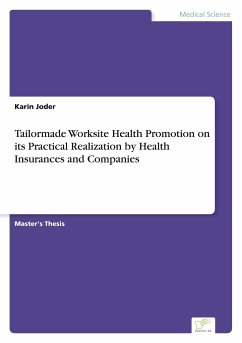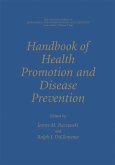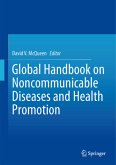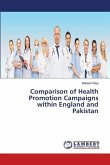Master's Thesis from the year 2006 in the subject Health Science, grade: 2,0, Hamburg University of Applied Sciences (Gesundheitswissenschaft), language: English, abstract: Inhaltsangabe:Abstract:
A healthy economy requires healthy enterprises. In turn, an enterprise stands and falls with the health, i.e. efficiency and commitment of its most important creation of value factor, the employee.
Directly visible or also invisible time missed by temporary losses or chronic duration illnesses, high fluctuation, poor motivation, poor creativity and service quality, missing emotional tie with the enterprise or inner notice weaken not only the competition ability and the stock of an enterprise, but charge the national economy and the health system altogether.
According to model calculations by the Federal Institute of Maintenance of Industrial Health and Safety Standards from the year 1998, enterprises in Germany spend about 28.4 billion euros per annum for employees fallen ill directly. The damage by a direct illness conditional production loss is estimated at about 45 billion euros per annum.
The complete economic damage among others due to high time missed, low motivation, productivity, etc. amount to a valued sum for the federal territory between 234 and 245 billion euros per annum.
Tailormade interventions to the worksite health promotion support companies to maintain and to promote the health, i.e. efficiency and performance readiness of their employees, to lower direct and indirect time missed and therefore illness costs. Among others, Heuchert et al. point at a prevention potential not exhausted until now.
The health insurance companies can carry out measures of the operational health support completing the maintenance of industrial health and safety standards. So the legal order of the health insurance companies in the context of the Code of Social Law to take up and to realize interventions, which contains a high potential for enterprises.
In accordance with a study of the federal ministry for health and social affairs (BMGS), about 45% of the legally scheduled budget was used for health support by health insurance companies in the year 2002. The judging size provided by the year 2002 amounted to Euro 2.56 per annum, Euro 1.19 per insured was spent in the year 2002, according to the study. Current data from the year 2005 were not published yet.
The operational health support has developed further within the last three years. However, it is assumed that the health potential lying in
20 SGB V is neither exhausted by health insurance companies nor enterprises on a full scale yet. The topic seems rather unimportant at first sight; it is worthwhile on the second look despite this comparatively small size of the expenditure to watch and to form the topic prevention by health insurance companies with special attention. Why? This is worthwhile because although the first and right step is very very timid, it is just done to one SGB V in that direction in which success or failure of a future health politics which earns this name will make up its mind. The way of 1,000 miles starts with a first step .
Aim of the master thesis on hand therefore is to receive an insight into the current realization and previous development of the operational health support in the context of a site regulation and for the practical realization, to find out beneficial as well as inconvenient factors. The prospects shall be included and compared comparatively both by enterprises and by health insurances. A broader aim of the study is taken up to find out to which extent the possibilities of the operational health support are known to the enterprises and whether the currently available prevention offers show the actual need currently as well as for the future.
From this, concrete action recommendations for further positive development of the operatio...
A healthy economy requires healthy enterprises. In turn, an enterprise stands and falls with the health, i.e. efficiency and commitment of its most important creation of value factor, the employee.
Directly visible or also invisible time missed by temporary losses or chronic duration illnesses, high fluctuation, poor motivation, poor creativity and service quality, missing emotional tie with the enterprise or inner notice weaken not only the competition ability and the stock of an enterprise, but charge the national economy and the health system altogether.
According to model calculations by the Federal Institute of Maintenance of Industrial Health and Safety Standards from the year 1998, enterprises in Germany spend about 28.4 billion euros per annum for employees fallen ill directly. The damage by a direct illness conditional production loss is estimated at about 45 billion euros per annum.
The complete economic damage among others due to high time missed, low motivation, productivity, etc. amount to a valued sum for the federal territory between 234 and 245 billion euros per annum.
Tailormade interventions to the worksite health promotion support companies to maintain and to promote the health, i.e. efficiency and performance readiness of their employees, to lower direct and indirect time missed and therefore illness costs. Among others, Heuchert et al. point at a prevention potential not exhausted until now.
The health insurance companies can carry out measures of the operational health support completing the maintenance of industrial health and safety standards. So the legal order of the health insurance companies in the context of the Code of Social Law to take up and to realize interventions, which contains a high potential for enterprises.
In accordance with a study of the federal ministry for health and social affairs (BMGS), about 45% of the legally scheduled budget was used for health support by health insurance companies in the year 2002. The judging size provided by the year 2002 amounted to Euro 2.56 per annum, Euro 1.19 per insured was spent in the year 2002, according to the study. Current data from the year 2005 were not published yet.
The operational health support has developed further within the last three years. However, it is assumed that the health potential lying in
20 SGB V is neither exhausted by health insurance companies nor enterprises on a full scale yet. The topic seems rather unimportant at first sight; it is worthwhile on the second look despite this comparatively small size of the expenditure to watch and to form the topic prevention by health insurance companies with special attention. Why? This is worthwhile because although the first and right step is very very timid, it is just done to one SGB V in that direction in which success or failure of a future health politics which earns this name will make up its mind. The way of 1,000 miles starts with a first step .
Aim of the master thesis on hand therefore is to receive an insight into the current realization and previous development of the operational health support in the context of a site regulation and for the practical realization, to find out beneficial as well as inconvenient factors. The prospects shall be included and compared comparatively both by enterprises and by health insurances. A broader aim of the study is taken up to find out to which extent the possibilities of the operational health support are known to the enterprises and whether the currently available prevention offers show the actual need currently as well as for the future.
From this, concrete action recommendations for further positive development of the operatio...








